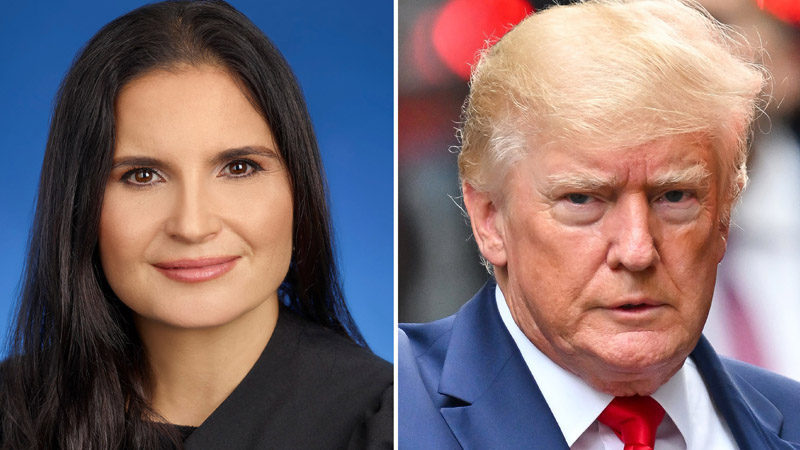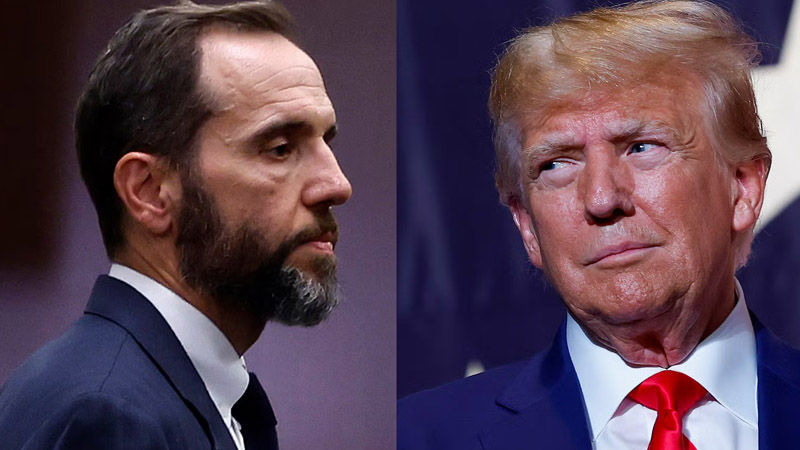“Now, there is none” Judge Aileen Cannon Accused of Deliberately Delaying Trump’s Document Case

(Getty Images)
Judge Aileen Cannon recently took action in the criminal documents case involving former President Donald Trump, which has drawn significant criticism from legal professionals. Joyce Vance, a former federal prosecutor and current legal analyst frequently appearing on MSNBC, expressed concerns over the weekend regarding Judge Cannon’s handling of the case out of Florida.
According to Vance, the judge’s actions seem to deliberately slow down the proceedings, particularly in light of previous reversals during the investigation phase by appellate courts. In a detailed analysis published on her Civil Discourse blog on Substack, Vance argued that there was already little doubt about Judge Cannon’s intentions to delay the resolution of the Mar-a-Lago classified documents case.
“This case could and should have been ready for trial in December or January if she had been working on the motions and realistic deadlines all along,” she wrote. “Judge Cannon’s action here bears a striking similarity to what Trump asked her to do back in July of 2023 when he and co-defendant Walt Nauta filed a joint motion asking her to ‘postpone initial consideration of any rescheduled trial date until after substantive motions have been presented and adjudicated.’ She didn’t then; she scheduled the May trial date. But now, she has given Trump what he wanted all along, and it’s contrary to what the law directs judges to do.”
“Now, there is none,” the legal expert added. Vance goes on to quote The Speedy Trial Act, which says, “In any case involving a defendant charged with an offense, the appropriate judicial officer, at the earliest practicable time, shall, after consultation with the counsel for the defendant and the attorney for the Government, set the case for trial on a day certain, or list it for trial on a weekly or other short-term trial calendar at a place within the judicial district, so as to assure a speedy trial.”
She pointed out that these actions appeared strategically timed to push the case’s conclusion past the upcoming election, suggesting a possible motive to mitigate political repercussions for Trump. Judge Cannon has faced accusations of not adhering strictly to legal precedents and judicial expectations. Such accusations came into sharper focus following her earlier decisions related to the case, which were later overturned on appeal.
These reversals have led to further scrutiny of her recent decisions and the pace at which she is advancing the case. Vance’s commentary on this matter sheds light on concerns within the legal community regarding the integrity and impartiality expected of the judiciary, especially in high-stakes cases involving political figures. The implications of delaying a case of this magnitude are substantial, not only for the individuals involved but also for public trust in the legal system.
The situation continues to evolve as legal experts and observers closely monitor Judge Cannon’s actions and their potential impact on the timing and outcome of Trump’s ongoing legal battles. The broader discourse surrounding this case reflects ongoing debates about the role of the judiciary in maintaining balance and fairness in the administration of justice, particularly in politically sensitive cases.


